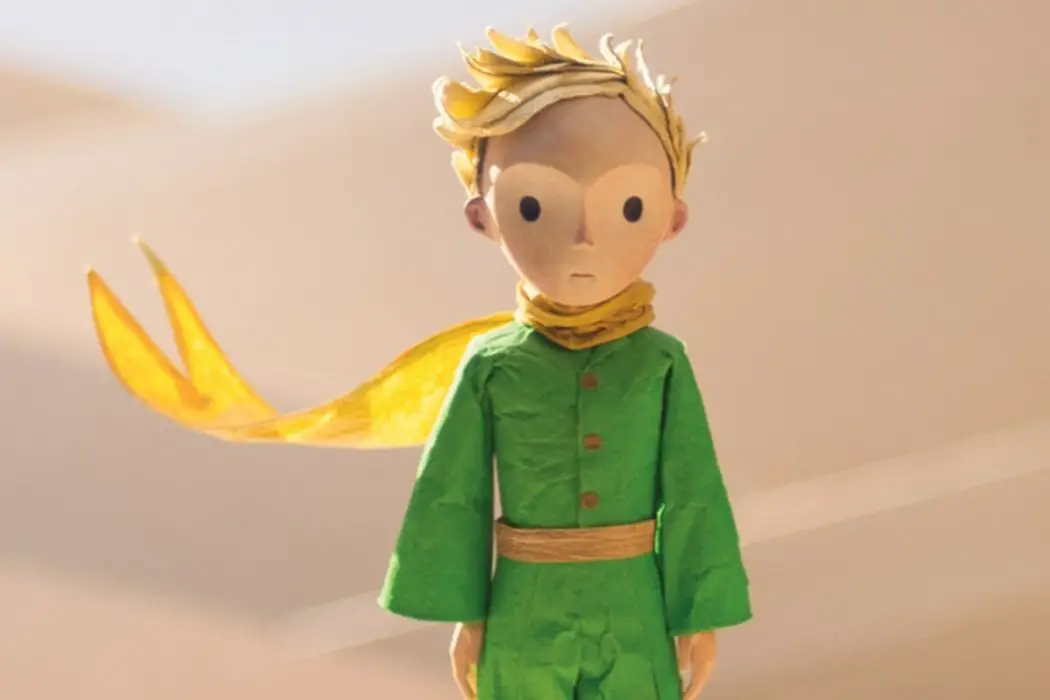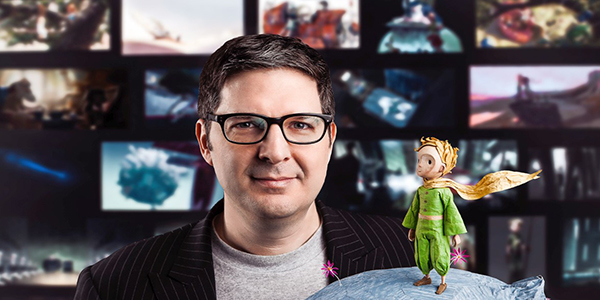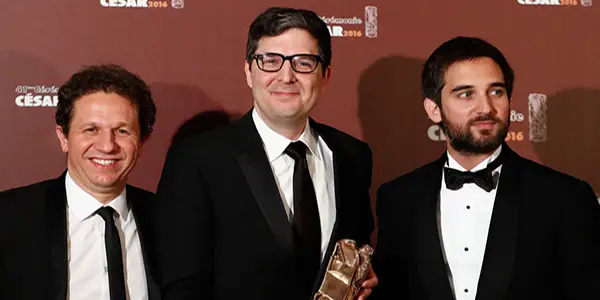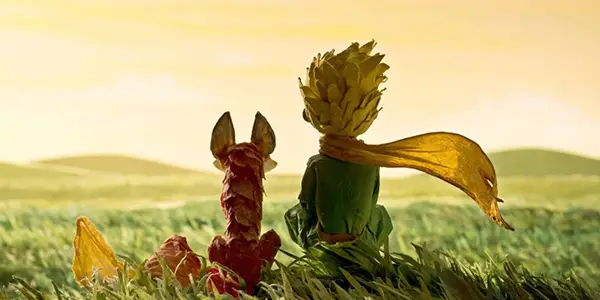Changing Hands, Changing Times: Why THE LITTLE PRINCE Moved To Netflix

Artistic independent films are where it's at but Hollywood blockbusters…
In 2010 Mark Osborne, co-director of Kung Fu Panda, was hired by producers Aton Soumache, Alexis Vonarb and Dimitri Rassam to direct an animated adaptation of Antoine de Saint-Exupéry’s 1943 classic The Little Prince, an artistic and philosophical children’s book that was translated into around 260 languages.
When Soumache and Rassam of On Entertainment (also known as On Animation) first approached Osborne to direct the adaptation, he turned it down due to his regard for the novella: “I had a deep affection for the book and I knew so many people had a strong connection. At first I felt there was no way you could make a movie out of the book – it lives in the imagination of the reader,” he said in an interview on Today. Osborne then had the idea to ‘frame’ the original story in a larger CG narrative. The precious tale, however, would be stop-motion, thus preserving its artistry.

Where does Paramount Pictures come in?
Paramount Pictures already owned the rights to the story because of a live-action musical of the same name they made in 1974. They released the adaptation in France through their French arm, while Osborne and his producers found international distributors to release the film in as many foreign countries as they could. The film did best in China where it took nearly $21 million at the box office, $11.5 million in France and $10 million in Italy. The film also won a César award for Best Animation Movie at the 41st César award ceremony. The film is said to be the most successful French-produced feature-length animation of all time, according to UniFrance.

Despite the film’s successes, Paramount was hesitant to release the film in the US because of perceived lack of appeal. The film was made in France by an international team of artists and Paramount wasn’t heavily involved or invested. They expected the financiers to raise enough money to buy the rights from them and distribute it in the US through other means. When this didn’t happen, the case went to court. Cartoon Brew says the producers then had to pay $20 million for the distribution package, which included prints and adverts. When this didn’t happen either, Paramount dropped the film less than a week before its US release date. Eventually a deal was worked out with Netflix to take it on.
But why would Netflix want what Paramount didn’t?
Netflix is a constantly growing media platform and has been making their own content, Netflix Originals, for a while now. This allowed them to branch out and become a content creation service rather than just a streaming service. Netflix also buys productions from producers who either cannot get large distributors or are having difficulty with smaller ones. They offer to buy the production outright, giving it a place on its streaming service and sometimes a cinema release. Netflix is also a major player at film festivals like Sundance, where they are in competition to outbid other large distributors.
With over 75 million subscribers, Netflix is growing to be one of the largest subscription-based content services on the internet. Brian Wright, the former Nickelodeon exec who now works as Vice President of Family Content at Netflix, said in an interview with CNET that he was brought in to “fill the gap with all-ages family-friendly content.” With Netflix announcing they have a $6 billion budget to bring 1,000 hours of original content to its audiences, it’s no surprise that they’re buying high-end content that they can call their own.

In the case of The Little Prince, after Netflix bought the production it was classed as a Netflix Original – even though it clearly wasn’t. This is because Netflix also calls the programmes that it has exclusive first run rights to ‘originals’, as they are the only distributor of that content in that region. The increase in subscriptions from its original content gives them the power to purchase more of what is doing well. For Netflix, snapping up a big-budget animation with Mark Osborne at the helm was a no brainier. On top of the attraction of it being the first animated non-musical telling of The Little Prince, it had a killer voice-cast featuring James Franco, Jeff Bridges, Rachel McAdams and Paul Rudd.
What can we learn from this?
We can learn a lot from this situation about the current state of the film industry and how it’s changing. If an Academy Award nominee and a popular book adaption can’t give a studio confidence, then the competition must be pretty strong. It isn’t news that film releases have increased in huge amounts over the past few decades. More and more people have access too and are making films. This means getting a studio on board is all the more difficult.
The way we consume our media is changing too. Distribution and old-fashioned viewing patterns are slowly evolving to fit societies’ priorities and work with technological advancements. While cinema releases are still a huge part of a film’s life, online streaming services are filling a hole in the market where DVD releases used to be. With so many films not getting a cinema release, services like Netflix can give some of the films a home in front of its very large and growing audience. Netflix likes to have stand-out content. Unusual and entertaining, emotional and thought-provoking, The Little Prince has it all.
Go ahead and watch it on Netflix, and tell me what you think!
How much do you think the way we watch films will change? Or have you heard of similar stories like this? Let me know!
Does content like this matter to you?
Become a Member and support film journalism. Unlock access to all of Film Inquiry`s great articles. Join a community of like-minded readers who are passionate about cinema - get access to our private members Network, give back to independent filmmakers, and more.
Artistic independent films are where it's at but Hollywood blockbusters are cool too. A wanna-be filmmaker (aren't we all?) with a degree in TV (hopefully). "Where there is art, there is hope".













